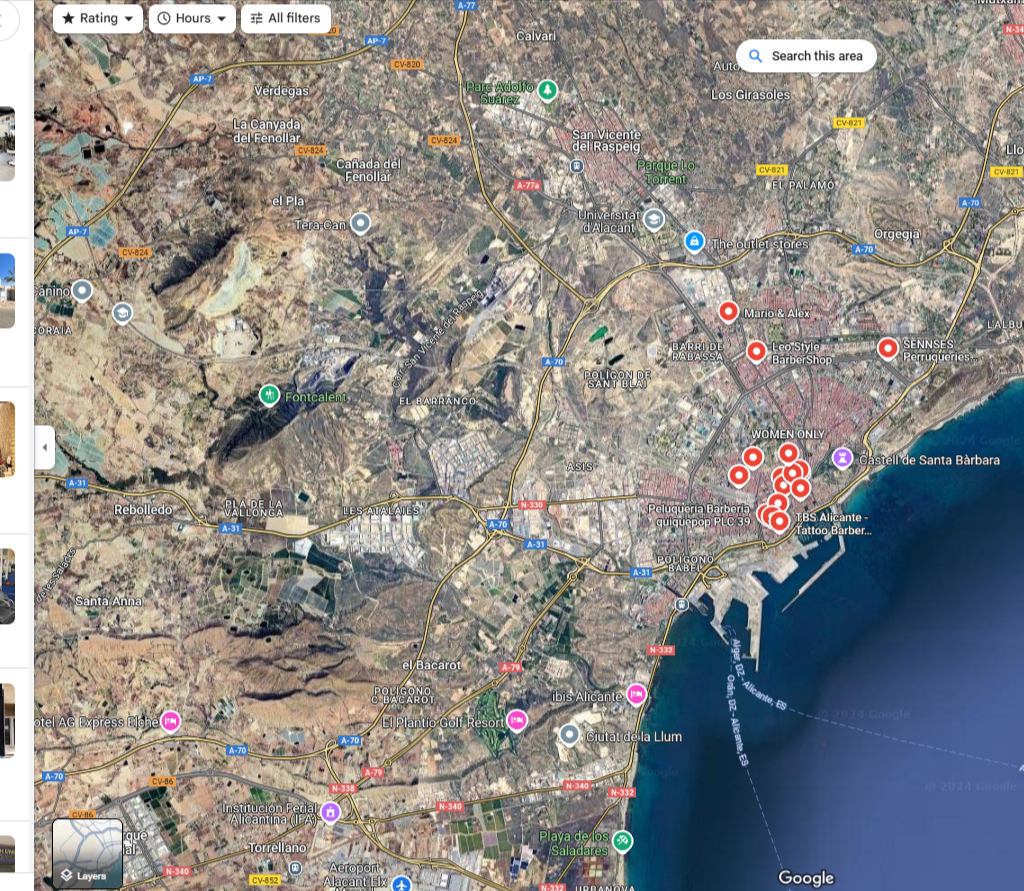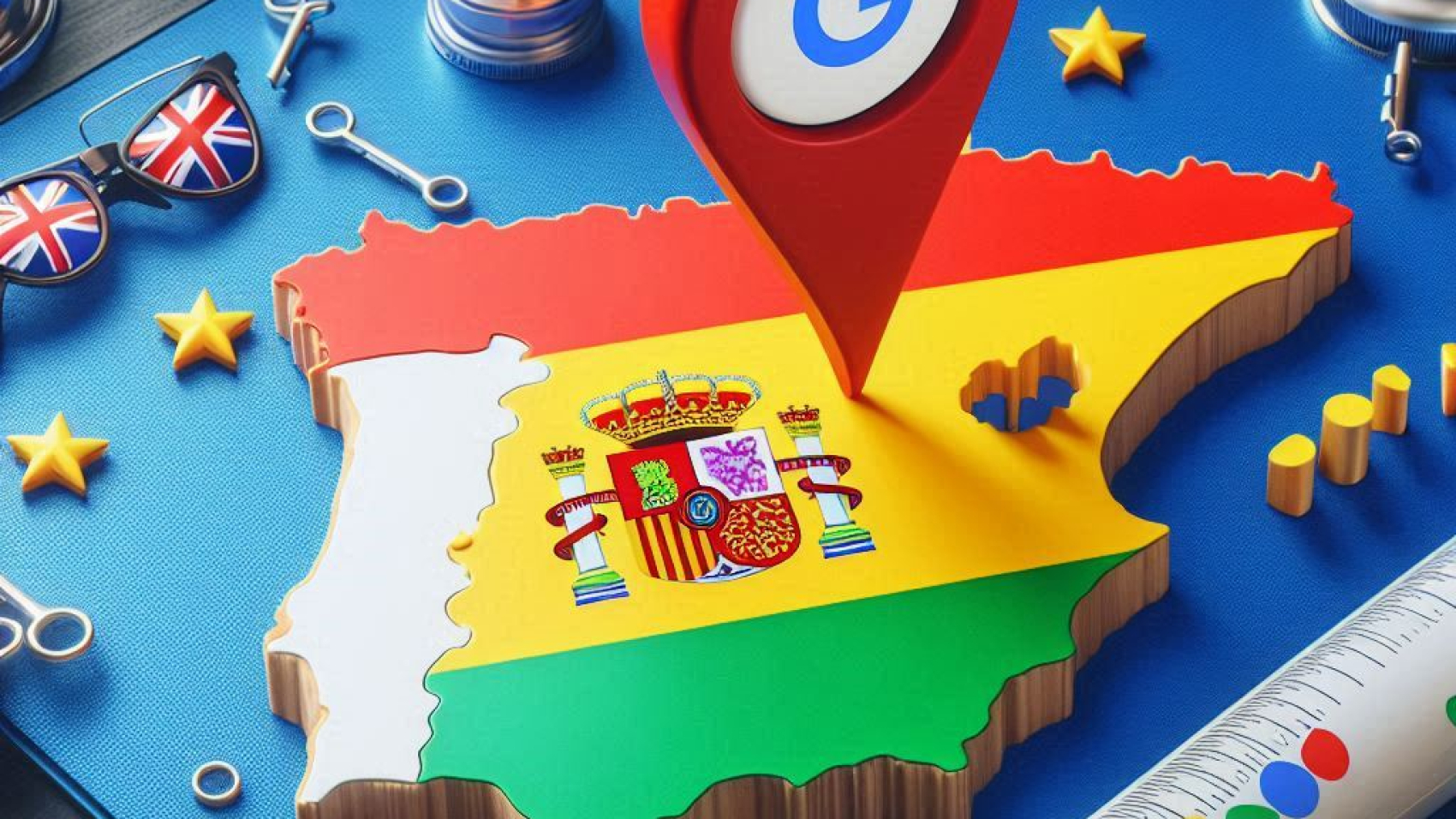For small business owners in Spain, especially British expats, tapping into the power of Google Business Profile (formerly Google My Business) is a game-changer. Whether you’re running a cozy café in Málaga or a real estate agency in Marbella, this tool offers numerous advantages that can help your business thrive in the local market. Setting up a Google Business Profile through a specialized service like we offer here at Pabz.ES, can elevate your visibility, increase customer trust, and ultimately grow your business.
Boost Your Local Visibility
One of the most significant benefits of using Google Business in Spain is the ability to dramatically improve your local visibility. When potential customers search for services in your area—such as “best tapas bar in Alicante” or “English-speaking accountant in Madrid”—your business will appear on both Google Search and Google Maps. This visibility is critical in Spain, where local searches are a significant driver of consumer behavior.

With features like the “Local 3-Pack” (the top three businesses displayed prominently on Google search results), your business has a chance to be seen by a large local audience. This is a prime piece of digital real estate that can boost your chances of getting inquiries, bookings, or store visits without having to invest in costly advertising. Many businesses report up to 700% boost in clicks simply by showing up in this coveted spot.
Build Credibility and Trust
Trust is the cornerstone of customer decision-making, and a Google Business Profile can help you build it. Google’s verification process adds a layer of authenticity to your business, making potential customers 2.7 times more likely to consider you reputable if they see your complete profile. This is especially important for British expats who may be navigating unfamiliar markets and cultures. When new customers see that you are verified and actively engage with reviews, they are more likely to choose your business over a competitor without such a presence.
Additionally, the reviews feature allows you to display customer feedback openly. Positive reviews and your responsiveness to both compliments and complaints help establish trust. Consumers in Spain, like many other markets, rely heavily on peer feedback—90% of people read reviews before making a purchase. Engaging with these reviews, whether they’re glowing or critical, can demonstrate that you value customer feedback and are committed to service excellence.
Free and Targeted Advertising
Running Google Ads or social media campaigns can get expensive, but Google Business Profile offers a free way to advertise your services to local customers. Once your business appears in local search results or on Google Maps, you’re getting targeted exposure without spending a cent. This free visibility can be especially beneficial if you’re a small business with a limited marketing budget.
Moreover, Google Business offers additional tools, like Google Posts, which act as mini-ads that you can update regularly to promote seasonal deals, new products, or special events. These posts show up directly on your business listing, keeping your customers informed and engaged with your latest offers without the need for a dedicated advertising budget.
Interact Directly with Your Customers
Engagement is key in today’s business landscape, and Google Business Profile allows you to communicate with customers directly. You can respond to reviews, answer customer queries, and even set up direct messaging. This real-time interaction not only improves customer satisfaction but also helps you resolve issues quickly, potentially turning a negative experience into a positive one.
For British expat-owned businesses in Spain, direct engagement is particularly important. Providing quick answers about services, opening hours, or special requests can make a significant difference in attracting customers, especially those who are looking for English-speaking businesses in a predominantly Spanish-speaking environment.
Insights to Refine Your Marketing Strategy
Understanding your audience is crucial to any successful marketing strategy. Google Business Profile gives you access to valuable insights and analytics about how customers are finding your business, what search queries they are using, and how they are interacting with your listing. This information allows you to tailor your marketing efforts based on real data.
For example, you can track how many people request directions to your store, how many clicked through to your website, or which photos are getting the most views. With these insights, you can optimize your Google Business Profile to focus on what’s working and make informed decisions about your next steps.
Showcase Your Business’s Unique Features
One of the lesser-known benefits of Google Business is the ability to showcase your business’s unique offerings through photos, videos, and updates. If you’re running a restaurant, for example, you can display your menu, highlight signature dishes, or even post interior shots of your venue. This helps customers visualize what it’s like to do business with you before they even walk through the door.
Similarly, for businesses offering services, you can upload images of your work, staff, or location, giving potential customers a sense of trust and familiarity before they engage with you. Spanish customers, like those in many countries, tend to trust businesses that are transparent and show that they have nothing to hide. By regularly updating your profile with new photos and posts, you can keep your audience engaged and interested.
Increase Website Traffic and Footfall
A well-optimized Google Business Profile can serve as a powerful driver of both online and offline traffic. Not only does your business listing make you easier to find on Google Maps, but it can also increase the number of visitors to your website. Studies show that businesses with complete profiles are 70% more likely to attract physical store visits and 35% more likely to get website clicks.
This is especially useful for businesses that rely on local foot traffic, such as retail stores, restaurants, and service providers. By increasing your visibility in search results and encouraging more people to visit your website or physical location, you can see significant growth in customer engagement and sales.
Why Choose Us?
For British expats and small business owners in Spain, navigating the digital landscape can feel daunting, especially when it comes to setting up essential tools like Google Business Profile. That’s where Pabz.ES comes in. We specialize in helping British-owned businesses in Spain create, optimize, and manage their Google Business Profiles, ensuring you get the most out of this powerful platform. From increased local visibility to direct customer engagement and valuable marketing insights, a properly set-up Google Business Profile can transform your business in Spain.
Let us help you take your business to the next level by making sure you stand out in local search results and connect with the customers that matter most.



